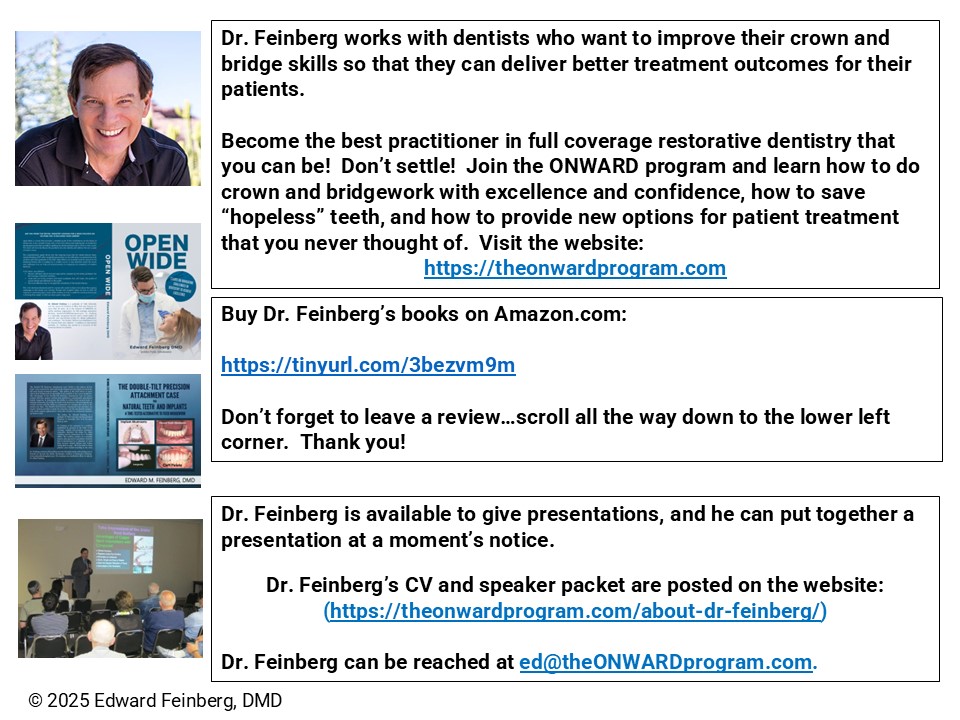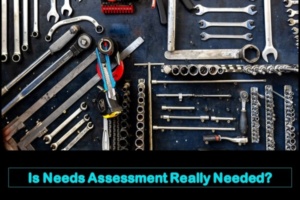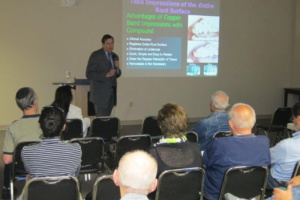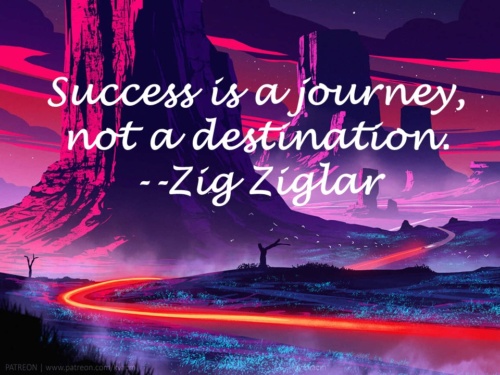
Some thoughts about Success
We are—more than ever before—conditioned to equate “success” with “money.” Perhaps one reason is the quest for money has become a priority due to high overhead, exorbitant student loans and the tremendous cost of funding a modest lifestyle. Not only is success often defined by money, but there is a tendency to equate a person’s “worth” with the value of their accumulated wealth. “An individual’s worth,” says self-help expert Denis Waitley, “has nothing to do with salary, possessions or position. Personal worth or esteem is something you have to recognize, appreciate and enjoy, or your answer to the question, ‘How much are you worth?’ will be ‘Not much—probably nothing.’1”
During my career, I had a few billionaire patients who had their names engraved on hospital wings. I used to think, “Wow, these patients have no problems.” Boy, was I wrong! When I found out the challenges my billionaire patients faced in their lives, I wouldn’t ever trade “lives” with them. It was clear to me that having money did not translate into happiness or success.
It is therefore a pointless waste of time to envy the financial success of others. I believe that we are all on different journeys in our lives here on earth. We are each here to fulfill a special mission or purpose and we are here to learn from challenges that are inevitable. But, like wealth, we must never be defined by adversity. Adversity is a learning experience, for without adversity, there is no growth.
For me, success has always been defined by “being” rather than “having.” This mindset was instilled in me by my father and mentor, Dr. Elliot Feinberg. My dad vowed early on that he wanted to be “the best dentist.” He persevered to make that vow a reality. At the beginning of his dental career, my father found an extraordinary mentor—Dr. I. Franklin Miller—and he built his knowledge and skills on the foundation he received from his mentor. He was the best dentist I ever knew—and the work that he did in his lifetime is unrivaled to this day. I have half a century of patient pictures to prove it.
Why is it that I hear no one making such vows today? There seems to be a blind acceptance of mediocrity; and to me it seems that mediocrity has become the new standard of care in many areas of Dentistry. I would like to be someone’s mentor in the same way that my father mentored me. I cannot find a single young practitioner who even wants a mentor.
My personal vow is to become “my best self:” to live up to my potential and to make the best use of the talents that God gave me. Achieving “my best self” is my definition of success. But there’s a catch. There is no finish line! Whenever a goal is reached, another one lies on the horizon. Achieving one’s “best self” is therefore a continual process without end. Denis Waitley offers an apt definition of success: “Success is the process of learning, sharing, and growing.”
I believe that there are several traits one must acquire in the quest for one’s “best self.”
- Personal Mission. Denis Waitley asks in his book, “If you don’t clearly know where you’re going, how will you
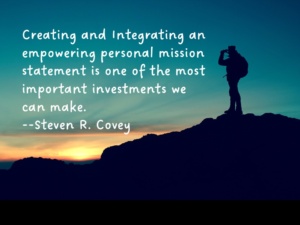 know when you get there?3” Most people are like rudderless ships—drifting aimlessly through life. Very few have figured out why they were put on this earth, what they want to accomplish and how they would like to matter in this world. Tchiki Davis Ph.D, a consultant, writer and expert on well-being, explains that “we’re too busy dealing with immediate, urgent tasks to think about what we want to do in this life and where we want to end up.4”
know when you get there?3” Most people are like rudderless ships—drifting aimlessly through life. Very few have figured out why they were put on this earth, what they want to accomplish and how they would like to matter in this world. Tchiki Davis Ph.D, a consultant, writer and expert on well-being, explains that “we’re too busy dealing with immediate, urgent tasks to think about what we want to do in this life and where we want to end up.4”
I was lucky enough to figure out my mission as a teenager. I was given an unbelievable opportunity to learn from the best practitioner in Dentistry. I was also given talents that complimented my father’s talents—so together we made an unbelievable team. We practiced dentistry for 23 years and he taught me everything—from amazing crown and bridge skills that few dentists have today to critical thinking skills. What was given to me is priceless; and it is my personal mission to carry out our shared legacy.
Most people flounder before finding the path that is right for them. Developing a personal mission statement can help clarify direction. A personal mission statement, says Tchiki Davis, begins with asking fundamental questions such as:
-
-
- Why are you here on this earth?
- What impact do you want to have in the world?
- How do you want to make an impact?
- Who do you want to have an impact on?
- What are the special talents that God gave you?
- What are your beliefs and values?
- What makes you feel most happy and alive?
-
A good exercise for developing clarity, she adds, is “to think about the end of your life and work backward. Imagine attending your own funeral. Think about what would be said in the eulogy. Would that eulogy reflect your values and personal goals? If you find that the eulogy of today’s version of you isn’t what you really want, clarify for yourself what you do want and consider how your mission statement can guide you to that end goal.
Tchiki Davis points out that developing a personal mission statement is a process that is never written in stone. It is quite common for personal mission statements to evolve with personal growth.
2. Integrity. Integrity, says Rachel Burgess, Executive Contributor to Brainz Magazine, is “the cornerstone for 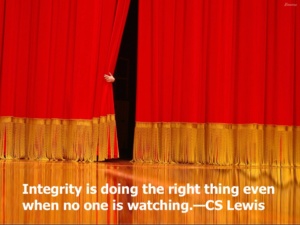 building trust and achieving success.2” Integrity can be defined as an “unwavering commitment to honesty, fairness and ethical behavior.” Respect and trust are built on the altar of integrity. Success inevitably follows because people want to work with those they respect and trust.
building trust and achieving success.2” Integrity can be defined as an “unwavering commitment to honesty, fairness and ethical behavior.” Respect and trust are built on the altar of integrity. Success inevitably follows because people want to work with those they respect and trust.
Before being honest with others, it is essential to be honest with oneself. Renowned physicist Richard Feynman once remarked that “The first principle is that you must not fool yourself — and you are the easiest person to fool.” Science writer Tom Siegfried elaborates on this famous quote: “The truth may not be what you’d like it to be, or what would be best for you, or what your preconceived philosophy tells you that it is. Unless you recognize how easily you can be fooled, you will be.6”
My father always said that one of the hardest tasks in Dentistry is to “be your own worst critic.” No one is watching over your shoulder. Do you accept that faulty impression with rationalizations like “that’s the best I can do” and “we will have to see what happens?” Do you really think you will get away with it? You know deep down that you won’t. Bacteria are microns. The patient is counting on you to do right by them. I saw my father retake impressions over that nobody would do over. Now that is integrity—striving to do right when no one is looking.
3. Compassion. According to the American Heritage Dictionary, empathy is defined as “the ability to identify with or understand another’s situation or feelings5.” But empathy alone is not enough. Alan Rees, a dental business consultant in the UK, noted that empathy tends to decrease over the duration of undergraduate training. He related an encounter with a young dentist who said, “empathy is important because it helps you to sell treatment plans.” This response reminded him of a quote from Groucho Marx: “You need sincerity to be successful: Once you can fake that you can fake anything!7”
Compassion steps beyond empathy. While empathy allows the dental practitioner to feel a  patient’s pain, compassion includes a sincere desire to ease suffering. In Buddhist psychology, compassion is “empathy plus love.8” Real compassion is genuine and cannot be faked. Dentists who are compassionate listen carefully to patients because they care about their concerns.
patient’s pain, compassion includes a sincere desire to ease suffering. In Buddhist psychology, compassion is “empathy plus love.8” Real compassion is genuine and cannot be faked. Dentists who are compassionate listen carefully to patients because they care about their concerns.
Compassion implies adherence to the Hippocratic Oath: “First do no harm.” Of late there has been a trend toward overly invasive treatments that often do not consider the patient’s overall well-being. Patients are all-too-often pushed into experimental and overly invasive treatments, and they are not given the information and alternative treatment options they need to make a decision that is truly best for them. If a dental practitioner has real compassion, he or she always asks himself: “Would I want this treatment for myself (or my cherished relative) if I had the same condition?”
4. Passion for Learning. Contrary to what most dental students believe, dental education really begins on the day of graduation. In addressing recent graduates, Dr. Fred Troxel said the following:
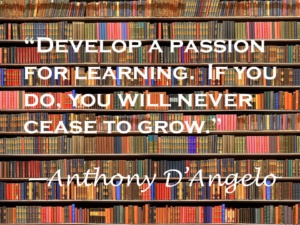 “Perhaps you can relate to the view that I had when I finally emerged from four years of being force-fed a mountain of information across many disciplines, thinking I knew a large percentage of what there was to know. I thought that if I could just get the faculty off my back, stop checking every step, and just turn me loose, I would fulfill my dreams and be successful. It would have been easy to fall into the Duning-Kruger trap – a well described psychological phenomenon of cognitive bias; a delusion whereby individuals with limited knowledge or competence in a given domain greatly overestimate their own knowledge or competence.9”
“Perhaps you can relate to the view that I had when I finally emerged from four years of being force-fed a mountain of information across many disciplines, thinking I knew a large percentage of what there was to know. I thought that if I could just get the faculty off my back, stop checking every step, and just turn me loose, I would fulfill my dreams and be successful. It would have been easy to fall into the Duning-Kruger trap – a well described psychological phenomenon of cognitive bias; a delusion whereby individuals with limited knowledge or competence in a given domain greatly overestimate their own knowledge or competence.9”
It is my observation that far too many younger practitioners stagnate in their own dogma by failing to examine alternative perspectives and exercise critical thinking. But how can new practitioners obtain experience without reinventing the wheel? Dr. Troxel answers: “by riding on the shoulders of giants.” Dr. Troxel urges colleagues to find mentors and pundits who are experts in their fields. Many, he adds, are not affiliated with dental institutions. “Listen and pay attention to those who are willing to show and discuss their failures, and the lessons they have learned. Avoid those who are only interested in bragging about their successes,” Dr. Troxel advises.
It is my observation that continuing education is the key to professional growth and endless fascination with the profession of Dentistry. In addition to giving CE courses, I have thousands of hours of continuing education under my belt—and I am still taking courses. I was told after 10 years of dental practice that I should keep a running list of my continuing education courses. That list is now 53 pages (and growing)!
Dr. Troxel’s wisdom for education growth is this: “Never quit, never give up, and never be satisfied or allow yourself to be deluded that you know it all. Please do not allow yourself to get ensnared in the Duning-Kruger syndrome.”
5. Attention to Detail. The American pastor and writer Charles Swindoll once said “the difference between 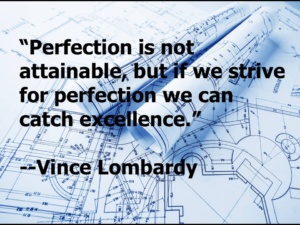 something good and something great is attention to detail.” One slight detail can make the difference between success and failure. For example, the Hubble Space Telescope was launched in 1990 and it was a $1.5 Billion endeavor. A 2µ mistake in the curvature of the telescope’s primary mirror—about 1/50th the width of a human hair—made the telescope useless to astronomers because the pictures were blurry. Fortunately, NASA’s brilliant COSTAR mechanism saved the day. It was installed on the space telescope in a spectacular space walk by astronauts.10
something good and something great is attention to detail.” One slight detail can make the difference between success and failure. For example, the Hubble Space Telescope was launched in 1990 and it was a $1.5 Billion endeavor. A 2µ mistake in the curvature of the telescope’s primary mirror—about 1/50th the width of a human hair—made the telescope useless to astronomers because the pictures were blurry. Fortunately, NASA’s brilliant COSTAR mechanism saved the day. It was installed on the space telescope in a spectacular space walk by astronauts.10
Details make the difference between success and failure for dentistry in a very similar way. Bacteria are microns. Dentists expect their dentistry to hold up for many years in a hostile environment—under water, under forces and bathed in bacteria. A high percentage of success depends on a mindset of seeking perfection—a precision approach that does not skip steps and take short cuts. Perry Paxton points out that “excellence is in the details. Give attention to details and excellence will come.”
Unfortunately, the pursuit of perfection is often viewed as a disorder [or perhaps an excuse to justify mediocrity]. It is true that there is a dark side to perfectionism that can result in personality and eating disorders. “It becomes a problem,” says Patricia Gardner MD from Samaritan Coastal Clinic, “if you start to feel overwhelmed or anxious because of your need for everything to be perfect11.”
However, Dr. Gardner notes that healthy perfectionism is focused and flexible. “Striving for perfection is beneficial and can help you reach your goals and achieve at a high level.” She explains that a healthy perfectionist has the following attributes:
-
- Sets realistic goals and works to achieve them.
- Learns from mistakes and tries again.
- Feels comfortable with the demands of achievement.
- Works to maintain order and organization.
- Plans ahead.
- Focuses on solving problems.
One of Vince Lombardy’s most enduring quotes is “Perfection is not attainable, but if we strive for perfection, we can catch excellence.” Be a healthy perfectionist!
6. Perseverance: “Practical perfectionists are committed to excellence, give attention to details, and have  systematic and disciplined work habits,” echoes Denis Waitley. However, in spite of best efforts, failure is inevitable. We are all human beings, and according to Shakespeare, “to err is human.” Murphy expounds on this thought with laws to prove that nothing ever quite works out how success gurus say it will. Denis notes that when practical perfectionists make a mistake, “they handle it rather than let it handle them.” Failure is certainly unpleasant, but someone with a healthy self-image will view failure as a learning opportunity. Figuring out why something went wrong can prevent future similar failures.
systematic and disciplined work habits,” echoes Denis Waitley. However, in spite of best efforts, failure is inevitable. We are all human beings, and according to Shakespeare, “to err is human.” Murphy expounds on this thought with laws to prove that nothing ever quite works out how success gurus say it will. Denis notes that when practical perfectionists make a mistake, “they handle it rather than let it handle them.” Failure is certainly unpleasant, but someone with a healthy self-image will view failure as a learning opportunity. Figuring out why something went wrong can prevent future similar failures.
Denis emphasizes that we should never identify ourselves with our failures. People who make negative evaluations and judgements of themselves because they have failures really have an underlying problem with self-image. It is important to use positive reinforcement when we talk to our “higher self” about why we failed. However, positive reinforcement should never be used to “cop out or rationalize a lack of planning, self-discipline or effort,” says Denis. “But when you know you have done your homework and put in a good effort, positive reinforcement is the way to handle failure and turn it into fertilizer.”
Denis also points out that fear and failure are first cousins. He explains that “to handle failure, you need to know how to handle fear.” He notes that the two greatest “fear busters” are knowledge and action. Adaptability is what makes the difference between failure and success, disappointment and fulfillment.
Abraham Lincoln and Winston Churchill have both been credited with the famous saying “Success is going from failure to failure without loss of enthusiasm.” What is most important is never giving up. “You are your own scriptwriter,” says Denis, “and the play is never finished, no matter what your age, position or place in life12.”
7. Communication Skills. Communication skills are a must for all who want to lead—leading a dental team, an 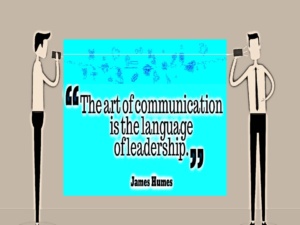 organization or being a “thought” leader. “Leaders must be able to think with clarity, express ideas, and share information with a multitude of audiences,” says the Center for Creative Leadership.13 These audiences include patients, dental team members, vendors, colleagues among others. The Center for Creative Leadership lists core traits of effective leaders. These traits include authenticity, accessibility, clarity and confidence, empathy and respect, and trust. [Sound familiar?] Communication binds together all the aforementioned traits in the quest for one’s “best self.”
organization or being a “thought” leader. “Leaders must be able to think with clarity, express ideas, and share information with a multitude of audiences,” says the Center for Creative Leadership.13 These audiences include patients, dental team members, vendors, colleagues among others. The Center for Creative Leadership lists core traits of effective leaders. These traits include authenticity, accessibility, clarity and confidence, empathy and respect, and trust. [Sound familiar?] Communication binds together all the aforementioned traits in the quest for one’s “best self.”
Good communication starts with the ability to listen. “Good leaders listen more that they speak,” explains the Center for Creative Leadership. Failure to listen can foment misunderstandings and result in missing out on important knowledge and perspectives. “If only the doctor would sit down, shut up, and listen,” exclaims Dr. London, author of Kill as Few Patients as Possible, “the patient will eventually tell him the diagnosis!”14
Learning to communicate clearly and effectively is not a skill that comes naturally for most people. It certainly was not easy for me. To this day I take courses in speaking and I practice techniques to make my communications more concise, effective and riveting. I am a huge fan of Patricia Fripp, former President of the National Speaker’s Association. She has a teaching website and monthly group instruction courses on how to communicate and deliver effective presentations. [https://www.frippvt.com/]
Final Thoughts on Success: Nobody has captured the profound essence of success better than Ralph Waldo Emerson. Here is his famous poem:
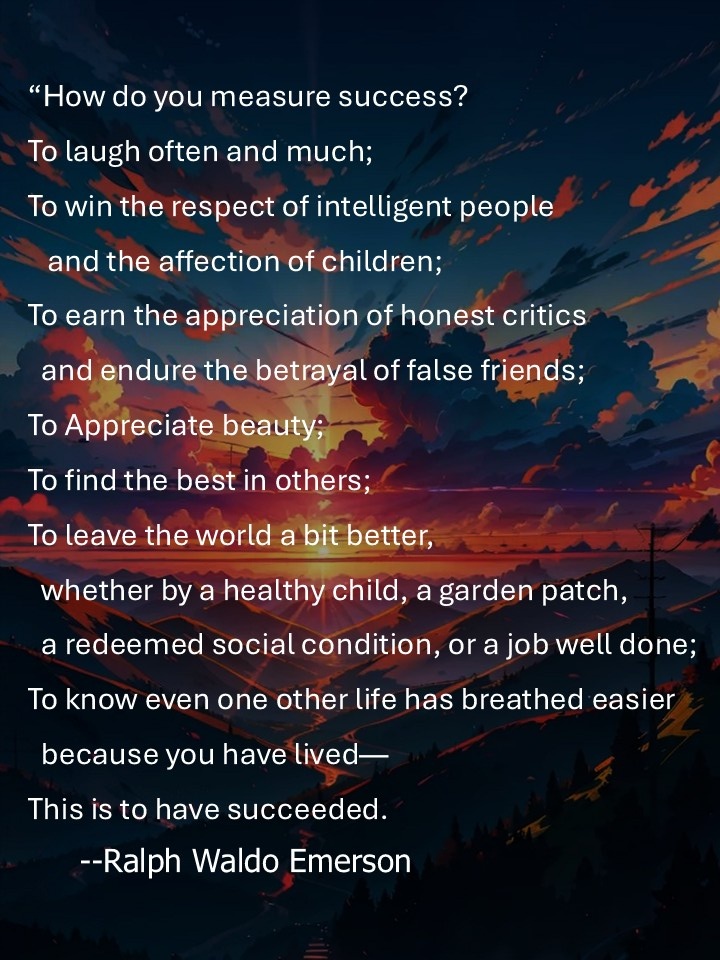
I wish you a joyful journey as you wind your way on the arduous road to success.
1Waitley, Denis; Being the Best—a Life-Changing Guide to Real Success; Pocket Books, New York; 1979; p. 27.
2Burgess, Rachel; “The Importance of Integrity in Personal and Professional Life;” Oct 13, 2023; https://www.brainzmagazine.com/post/the-importance-of-integrity-in-personal-and-professional-life.
3Waitley, Denis; Being the Best: A Life-Changing Guide to Real Success; Pocket Books, New York; 1979; p. 137-8.
4Davis, Tchiki Ph.D.; “How to Write a Personal Mission Statement: Tips for writing a declaration of your unique direction or purpose; Psychology Today; June 23, 2021; Reviewed by Chloe Williams; Adapted from an article published by The Berkeley Well-Being Institute; https://www.psychologytoday.com/us/blog/click-here-for-happiness/202106/how-to-write-a-personal-mission-statement.
5https://ahdictionary.com/word/search.html?q=empathy
6Siegfried, Tom; “In honor of his centennial, the Top 10 Feynman quotations;” Science News Magazine; May 11, 2018; https://www.sciencenews.org/blog/context/top-10-richard-feynman-quotations.
7Rees, Alun; “The Role of Empathy in Dentistry; Dentistry Magazine (UK); October 24, 2019; https://dentistry.co.uk/2019/10/24/the-role-of-empathy-dentistry/
8Editors of Psychology4U, a collection of blogs and anonymous posts on psychology; “Empathy vs Compassion: The Psychology of Feeling, Caring, and Connecting;” https://psychology4u.net/psychology/empathy-vs-compassion-the-psychology-of-feeling-caring-and-connecting/
9Troxel, Dr. Fred; “The Perpetual Student: Why I believe that CE is one of your most important investments;” ADA News; December 13, 2021; https://adanews.ada.org/new-dentist/2021/december/the-perpetual-student-why-i-believe-that-ce-is-one-of-your-most-important-investments/
10Dinner, Josh; “Fixing the Hubble Space Telescope: A timeline of NASA’s shuttle servicing missions;” April 22, 2025; https://www.space.com/space-exploration/hubble-space-telescope/fixing-the-hubble-space-telescope-a-timeline-of-nasas-shuttle-servicing-missions
11Editors of Samaritan Health Services, “Is it Healthy to Be a Perfectionist?” May 10, 2021; https://samhealth.org/news/is-perfectionism-healthy-tame-your-inner-taskmaster/
12Waitley, Denis; Being the Best: A Life-Changing Guide to Real Success; Pocket Books, New York; 1979; pp.14, 85, 199-223.
13Editors of the Center for Creative Leadership, Sass, Maggie PhD and Keil, Andre MA PCC; “Essential Communication Skills for Leaders;” March 26, 2025; https://www.ccl.org/articles/leading-effectively-articles/communication-1-idea-3-facts-5-tips/
14London, Oscar MD, WBD; Kill as Few Patients as Possible and 56 other Essays on How to be the World’s Best Doctor, Ten Speed Press; 1987.
©2025 by Edward Feinberg DMD
